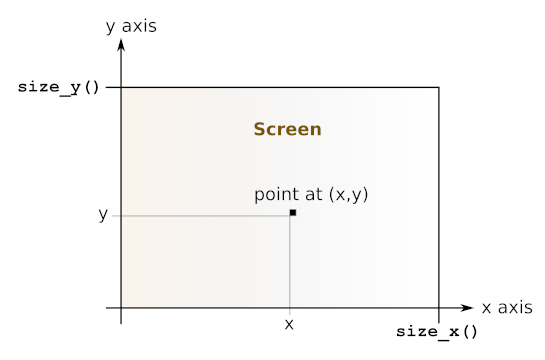Graphics
The graphics library provides a set of portable drawing primitives. Drawing takes place in a separate window that is created when Graphics.open_graph is called. It used to be distributed with OCaml up to OCaml 4.08.
Documentation
The API is documented
here
and as comments in the source file src/graphics.mli.
On Unix
On Unix graphics uses the X11 windows system.
Here are the graphics mode specifications supported by
Graphics.open_graph on the X11 implementation of this library: the
argument to Graphics.open_graph has the format "display-name geometry", where display-name is the name of the X-windows display to
connect to, and geometry is a standard X-windows geometry
specification. The two components are separated by a space. Either can
be omitted, or both. Examples:
Graphics.open_graph "foo:0": connects to the display foo:0 and creates a window with the default geometryGraphics.open_graph "foo:0 300x100+50-0"connects to the display foo:0 and creates a window 300 pixels wide by 100 pixels tall, at location (50,0)Graphics.open_graph " 300x100+50-0"connects to the default display and creates a window 300 pixels wide by 100 pixels tall, at location (50,0)Graphics.open_graph ""connects to the default display and creates a window with the default geometry.
On Windows
On Windows graphics uses the native Win32 API.
Examples
The examples/ directory contains a few examples. You can run them
with:
dune exec examples/graph_example.exedune exec examples/graph_test.exedune exec examples/sorts.exe
